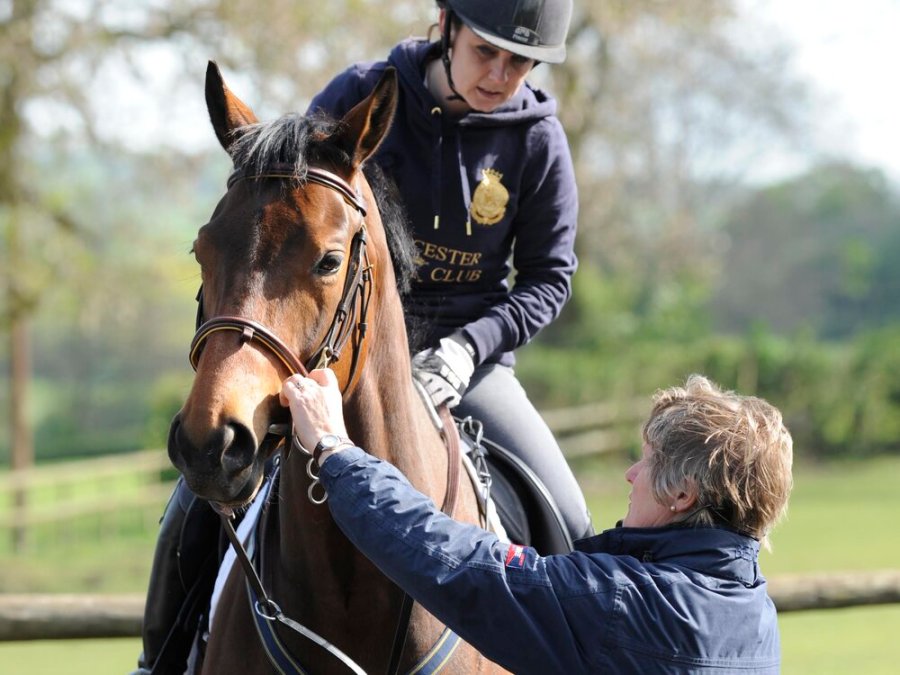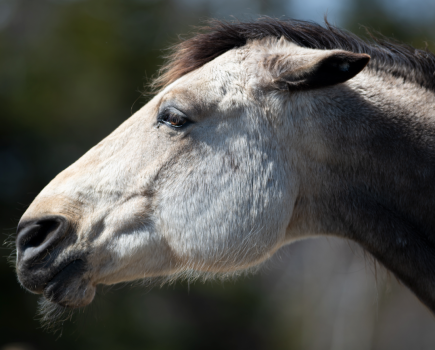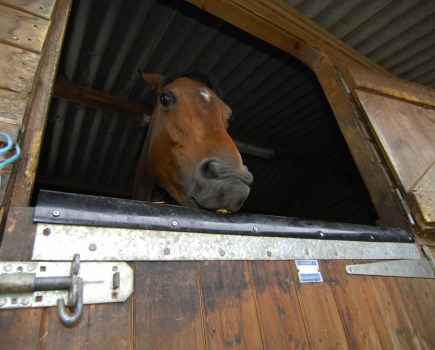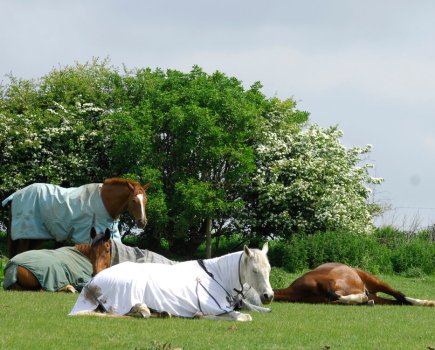Are horses really capable of ‘looking for excuses’ when they decide they’ve had enough of whatever task you’re asking of them? Clinical animal behavourist Jenni Nellist explains why we should question these behaviours a bit further.
There is a commonly held belief that horses use evasion tactics. At a fundamental level behaviour such as your horse rubbing his nose on his leg, could be what’s known scientifically as a ‘learnt behaviour’.
Through trial and error he may have learnt that rubbing her nose on her leg results in relief from work, so he engages in that more often.
Horses have the cognitive capabilities to do this; it’s a pattern of behaviour akin to a horse understanding, for example, that walking forwards relieves the rider’s leg pressure.
This is how we teach the ridden aids – it’s a process called negative reinforcement. The release of pressure is key to the learning; whatever behaviour occurs at the moment of release is reinforced and is therefore more likely to reoccur.
A bit far-fetched
It may be a stretch to say that your mare is looking for excuses, though. This is taking her cognitive abilities a bit further and suggesting that she knows what you’re asking, doesn’t want to do it and has decided to do something else instead that will cause you to change your mind about what you’re doing.
While I’m not one to disparage the cognitive abilities of horses, we must try not to anthropomorphise and attribute human thought processes to them.
Such a pre-planned attempt to manipulate your behaviour is far less likely than a simple learnt behaviour.
Ask yourself why
There are other possible explanations, however. If the horse continues with work after being given some encouragement, as an evasion tactic it’s not particularly successful yet your horse continues to do it.
Ask yourself why then he is doing this? Maybe he finds it uncomfortable – sources of directly related discomfort might be teeth issues, facial pain, a tight noseband, sweatiness, itchiness, or leg discomfort.
Or it could be a displacement behaviour due to physical discomfort elsewhere in the body, or a source of confusion about the work you’re doing.
It’s therefore probably best to see your horse’s behaviour as a way of him trying to tell you something, rather than evasion.
Don’t miss the latest issue of Your Horse Magazine, jam-packed with training and veterinary advice, horse-care tips and the latest equestrian products available on shop shelves, on sale now









